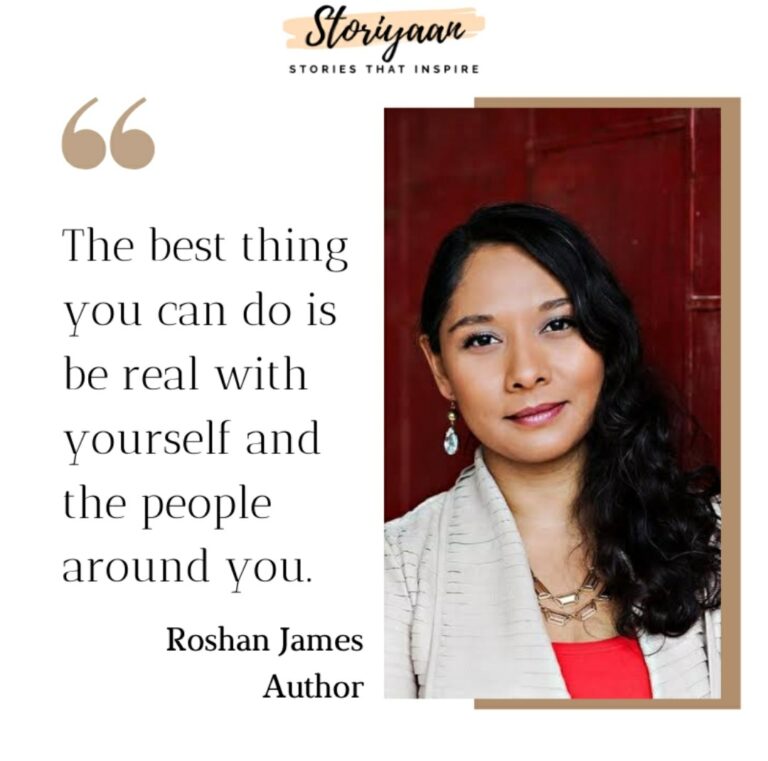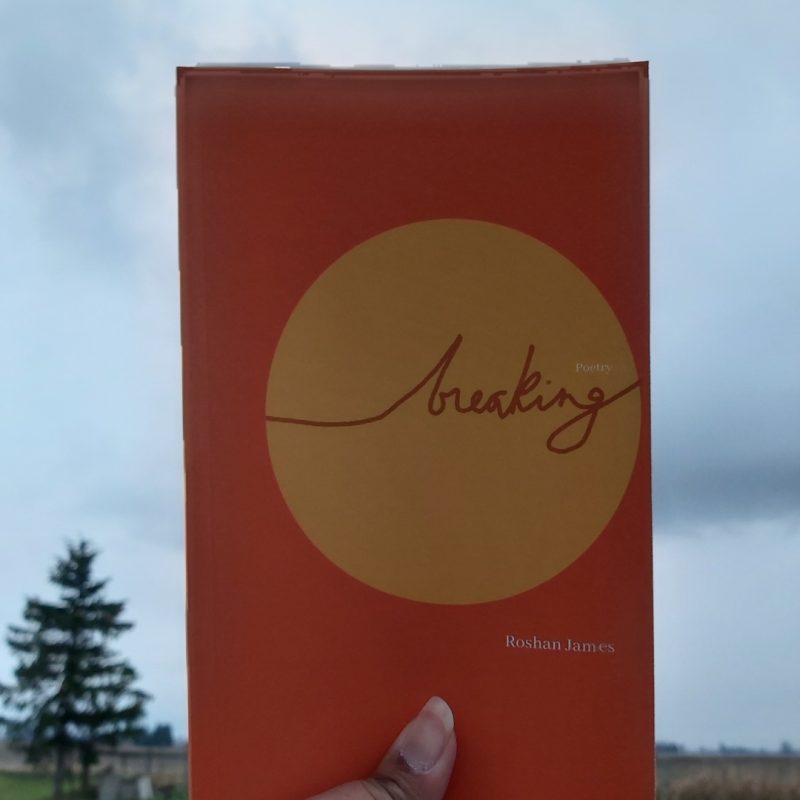Each one of us has a safe space. A space where we can let out our emotions, cry out loud or vent without the fear of being judged. That space can be on the top of a mountain, or in a little corner in your room, or simply on a piece of paper. For Roshan James, it was a piece of paper that enabled her to let go of the tide of emotions flowing within her.
Roshan James, in her interview with Storiyaan opens up about her mental health issues, how cultural diversity has helped her grow as a person and as a writer, and gives some first-hand advice on ways to tackle mental health issues.

Interview
Questions and answers
Was the amalgamation of different cultures crucial in shaping your personality?
Yes, it absolutely was! I feel strongly connected to my roots in Tibetan, Indian, and Burmese culture, while also being a first-generation Canadian. These different cultures and ethnicities have explicitly and subtly influenced who I am in terms of temperament, upbringing, the food I like and make, my art, and my writing style. I find that I innately gravitate to bold colours and gold. At the same time I also appreciate sublime beauty and minimalism. Above all, I crave open spaces and wild geographies that move me on a spiritual level.
How far do you believe in the notion of ars longa, vita brevis?
This phrase is actually a part of a longer statement. We could look at art as meaning expertise but the first thought is to look at the original intention. Regardless of the interpretation, one can always learn and fine-tune their skills but the time to do this is limited just like our energy. I believe that art has the potential to outlive its creator.
Living in Whitby seems to have been a turning point for you. How did that phase of your life later reflect in your poetry?
Indeed, it was a turning point. I felt like I started to find my creative voice, but also lost some self-confidence after we moved. That lack of confidence translated into seeking affirmation to ease my insecurities. I played it safe with my creative expression and I was nervous to share my art, music, and poetry. However, poetry and drawing specifically became my coping and processing tools. So, in a way, the sense of internal instability led me to create more, but it took me a very long time to comfortably share my work.
How was the transition from a law enthusiast to a career in insurance?
It’s interesting because insurance traditionally is all about a contract between the insurer and insured, and there are a lot of legal aspects and risks to assess in the insurance business. In a way, I didn’t leave law behind but found a different path that still looked at law from a different point of view.
What motivated you to start writing poetry through your blog and how did you promote it?
I had the spark of an idea and I ran with it. That’s essentially my creative process in a nutshell. I didn’t promote my blog poetry in an official capacity but shared it on my personal Facebook page and Ello. A few of my friends started commenting on my work and encouraged me to publish it. That was roughly a couple of years after starting to share poetry on my blog.
There was a time when you had to turn to spirituality in order to deal with your depression. How did it help you gain a fresh perspective?
Turning to faith, spirituality, and learning new practices such as meditation, varga, and smudging has helped me understand how energy works and how I can change my outlook, and what or who I attract. I’ve learned how to let go of shame which is debilitating and a root cause of my depression.
As a writer, how did the pandemic affect your creativity and writing?
Because I had more time on my hands, and because I’m a natural hermit who has learned to be an extrovert, I have actually enjoyed staying home. I have written more. I wrote my third book, Breaking. I have also had more headspace which gives me the clarity to envision new art projects.
Can you provide us with an insight into your journey with divine feminism?
I’m a new student of divine feminism. It’s been a revelatory experience, and as I reread texts that I read in my youth, I see now the traces of divine feminism subverted by popular religion. Because of this burgeoning awareness, I feel more connected to Source.
How is self-publishing working out for you?
I have always liked the creative control that comes with self-publishing but publishing a book is a very tedious task and can get overwhelming at times. But no matter what, I love it.
What kind of public reaction did “Breaking” receive?
So far, it has been good. My goal for my books is to connect with people and I’ve met new people (virtually) who are finding my book relevant to their situations, and some who don’t quite understand some of the poems. But that’s the tricky thing with poetry. It’s very subjective and more of a niche still in terms of literature.
What is the one drastic difference between "This is my story, this is my song" and "Art of the unknown."
In This Is My Story, I was deeply connecting with my Christian upbringing which I had been disconnected from for a few years. In Art, I started exploring the mysteries of unconditional love which broadened my view of faith, life, and connection. ‘This Is My Story’ has a story arc and outlines a specific chapter of my journey, whereas Art embraces the chaos and messiness of life. Art meanders and doesn’t follow a sense of chronology, and also speaks to different times in my life as opposed to a specific chapter.
What is a message that you would like to give to people going through mental health issues?
You may feel isolated, alone, different, beyond help or you may still be masking what you’re going through. No mental health experience is the same although some stories may be similar. The best thing you can do is be real with yourself and the people around you. This takes courage and vulnerability. It’s not easy and you may not always feel like it. And that’s ok. Go slow. Be gentle and realistic with yourself. You’ll be able to be realistic and clearer with others about your needs.
Quick 5
1. Didactic poetry or Romantic sonnets – I want to say both, but if I have to choose, I would say Didactic.
2. Renaissance or Age of Reason – Age of Reason
3. Virgil or Wilfred Owen – Virgil
4. Do you want to recite your poetry before an audience or do you want someone else to do it– Recite on my own
5. One piece of advice for young writers– Write about what interests you and your experiences so that you’re writing from an authentic place.

